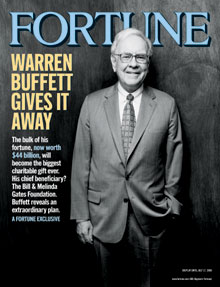Don't quite 'get' Google+ yet? Fear not, you'll be ok
I am almost certain that if you are reading this blog that you have at least some passing awareness of Google+, the search behemoth's latest foray into the social networking space. By most accounts G+ is starting strong, coming out of a short but limited private beta period to grow to over 10 million users in just a couple of weeks. Plus seems to fit nicely into a gap that many users of more established social networks feel exists, making it easier and simpler to share status updates, contents, images, etc. with discrete 'circles' of friends and contacts, positioning Plus less of a broadcast medium like Twitter, while offering better (at least ostensibly), control over data privacy, and possessing more potential for meaningful engagement than on Facebook.
G+ is still very new, and while most folks (at least the majority of ones in my 'Circles') have not done much more on the network other than start re-building the social connections they had previously formed on Facebook, LinkedIn, or Twitter, that has not led to a myriad of chatter and blog posts attempting to decipher, explain, and help you, the neophyte G+ user make sense of it all. We have seen this before with other Google products like Wave and Buzz. The products launch to a (relatively) small set of users, and almost instantly a flood of content gets created (with a shockingly limited data set and experiences to draw from), that compete for some knid of position or authority in the space.
For more casual users of social networking services, (like your Grandma on Facebook), the hype and bluster surrounding G+ is likely lost, as they happily continue to to post pictures, check in on family members, and tend to their virtual crops on Farmville. By early reports, G+ is mostly male, and very geeky. Sort of like the old High School A/V clubs back in the day.
And for more hard core social networking aficionados, G+ while intriguing and capable, will need to offer just enough reason to get people to divert at least some of their social networking energy away from the value networks they have spent the last few years building up on the liked of LinkedIn and Twitter. No doubt we will soon see a rapid uptake on 'productivity' tools that will automate bi-directional feeds and updates to and from G+ from the older social networks. And then soon after brands and organizations will begin to adopt G+, the game makers like Zynga and others will get on board, and finally the Google advertising engine will kick in - developments that will certainly change G+ from what it looks and feels like today.
It can be pretty hard to keep up with all these developments in the social space, and one might feel frustrated or even behind the times if they are not one of the early adopters. But I know of at least one other pretty well-known and successful guy that also has only a passing understanding of G+, legendary investor Warren Buffett. Check out the (paraphrased) comments from Buffett about the technology and social networking space taken from a recent interview on Bloomberg TV:
Interviewer: Did you ever feel you missed the boat on these four companies? (Google, Amazon, Apple, Facebook)
Buffett: ‘Well I missed the boat on them, but I don’t mind missing boats that I don’t know enough to captain’. ‘I don’t have to understand everything. I am smart in spots and I stay around those spots', (emphasis mine).
Nice one. Now of course Buffett must have staff that stay informed about the latest and greatest in technology, social, mobile, and whatever other new things are coming. But he made it clear in the interview that he personally did not really deeply understand these newer technologies and developments, and consequently did not feel compelled to chase them, or to change his strategy or direction to compensate for that fact. Buffett stressed the importance (at least for him), of sticking to what he knew and felt like he could excel at, rather than being constantly on the make to re-invent himself.
I think the lesson here might be an important one, as new technologies and networks continue to multiple and proliferate, it can be really easy and dangerous to get caught up in the chase ourselves. Some new network gets hot, a new tech gadget hits the market, a major service starts offering a new solution - whatever, and we almost immediately change course, divert some of our time and attention to this new shiny thing, and feel compelled to figure it all out. And exploit it for some personal gain, I mean isn't that at least part of the game?
While some experimentation is great, and even fun at times, I also think it can put us in a situation where we never stop chasing, and spend enough time really focusing on that thing we are really good at, that we understand deeply, and that we can comfortably and reliably add whatever value it is we are trying to create. Warren Buffett might be one of the greatest investors that has ever lived, but he knows what he knows, and it seems that realization has served him pretty well.
I kind of like Google Plus, but I also really don't know what if anything I'll ever do with it, and that any time I spend there is time I'm not doing something else. We make these kinds of tradeoffs all the time I know, but when the trade involves something so new and exciting as G+, I think we perhaps make them too easily.
What's your take - are we too caught up in the hype and the chase and not spending enough time at what we are really good at?

 Steve
Steve



